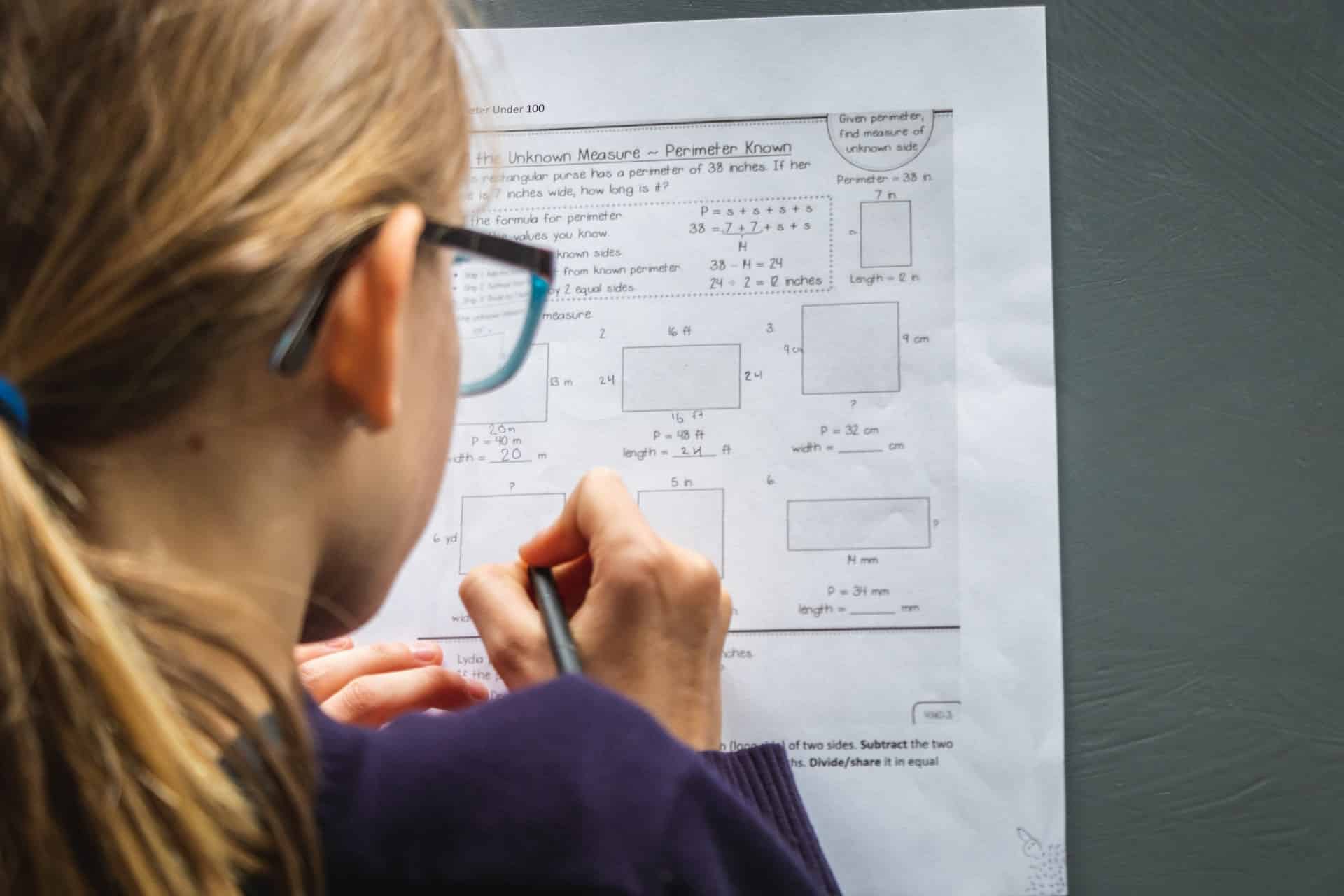Mathematics is a life skill. Everyone needs maths to manage their finances, pay their bills and buy food. For that reason, in many places, maths is a required subject for school leaving exams.
In Australia, maths is no longer required after Year 10. Students may continue their maths studies next year. They are not obligated to. In fact, students may choose HSC Mathematics Standard or Mathematics Advanced depending on their career goals. Of course, they have to know the difference between these two exams to select the right one.
But if maths is not required, why take further classes? If we were talking about practically any other school subject, that would be a valid question. Dropping History and Geography; maybe even Science wouldn't be as devastating. Those subjects aren't life skills; maths is. Let's go over some alarming statistics before pointing out reasons that you, specifically, should enrol in HSC Maths.

Australia Needs HSC Maths
Our world has changed dramatically over the last 50 years. The way we work, live and learn has become more technical. Mostly gone are the days of simple barter and trade. Around the world, today's markets operate on vast scales. Australia is dangerously close to falling behind.
The Organisation for Economic Cooperation and Development (OECD) conducted a study. It revealed that over one-fifth of the Australian population has poor numeracy and digital problem-solving skills. That OECD report should sound alarm bells at every level of Australian society.
Not so long ago, one could find unskilled work relatively easily and still earn a decent living. To wit, the manufacturing industry today is less than a third of what it was a half-century ago. Those jobs left and they're not coming back. For people to earn their living today, they have to be literate and numerate - have numbers sense and the ability to use maths.
And then, there's competition. For Australia to remain competitive on the global economic stage, we need to prioritise teaching the skills that will keep us in the running. Those include anything related to digital technologies, finance and the creative arts. Wouldn't you know it? HSC Maths exams pre-qualify you to work in all of these industries.
Here is where you can find the most effective maths tutor in Australia.

The HSC Mathematics Curriculum
Earlier, you read that not studying HSC Geography or History wouldn't be as big a loss, for you or our country. That was no slam on those subjects or anyone who works in those vital fields. It's just that studying geography positions you in geography-related career fields. Likewise, learning history makes you competitive for any history-related job. By contrast, HSC Maths prepares you for just about any profession.
Take finance, for example. The Year 12 HSC Maths curriculum covers loans, investments and annuities. Statistics and probabilities are topics related to finance. If you wanted a higher-level career in finance, the HSC Advanced curriculum takes a more scientific approach to those topics. The finance industry is one of Australia's strongest economic drivers.
What about Networking? Qualified candidates are in abysmally short supply and the demand for them keeps growing. The HSC Mathematics Standard curriculum covers principles of networking and other fundamental concepts. You could find work as a networking specialist in any of Australia's major cities.
The Standard course also covers measurements and algebra. Just about any industry calls for these maths skills. For instance, a chef must know ratios and proportions, and how to convert measures. A builder must know some algebra, geometry and trigonometry. Even artists and musicians need such maths skills.
The HSC Mathematics Advanced curriculum prepares students for maths-heavy university studies and careers. The Standard curriculum is designed to teach a broad range of mathematical skills, applicable across industries.

Learn Maths for Your Career
In the previous segment, we talked about all the career fields the HSC Maths curriculum prepares you for. Now, we need to emphasise the distinction between HSC Mathematics Standard 1 and Standard 2 exams. Not the exam particulars; that's the topic of another article. We need to discuss what each Standard exam equips you with for your future.
The Standard curriculum teaches the same five topics regardless of which exam you plan to sit. Those students who elect to sit the Year 11 Maths Standard exam have two options. Based on their exam results, they may choose Standard 1 or Standard 2. Standard 1 is a slightly shorter exam. It poses only 30 questions compared to Standard 2's 41. There is no difference in difficulty levels.
An Australian Tertiary Administration rating (ATAR) is these exams' most significant distinction. Standard 2 primes you for university study by according you an ATAR. Standard 1 is non-ATAR. That means you will not receive a rating that qualifies you for university study. What's the point of it, then?
Higher education isn't for everyone. Some students prefer to learn hands-on, through apprenticeships. There's nothing wrong with that. Your HSC Mathematics Standard 1 results, provided they're satisfactory, will work to your advantage when you seek out an apprenticeship. And even if you don't want to apprentice in a trade, your satisfactory marks will make you more employable.
You can discover the best maths tutor melbourne here.

Boost Your ATAR Results
As you're in pursuit of an ATAR, you must intend to enrol in a university study program. The highest rating you can achieve will give you the best chance of securing your place. That's true whether the course of study you aim for is maths-related or not. As that's the case, you'll sit HSC Mathematics Standard 2.
Keep these two facts in mind. First, Standard 1 does not grant any ATAR. Second, you don't have to choose a maths course. Good on you for doing so, though. Now, how can you earn the highest possible ATAR?
Consider revising with an HSC Maths tutor. They know this exam inside and out. They know that examiners don't just consider correct and incorrect exam answers. They grant points based on whether you understood and addressed the exam questions' intent.
Your HSC maths tutor can take the time to explain what every maths problem is designed to test you on. Those indicators may be how you approach the problem, how you apply critical thinking skills and how you came to your answer. Rote mathematics - simply memorising formulae, will not boost your ATAR.
The best way to maximise your ATAR is to grasp the concepts behind the maths. That, together with addressing the exam questions' intent will ensure your work meets all the criteria for top marks. Your HSC Maths tutor will help you master both of those skills. And even if you have a good grasp of those concepts, it's a good idea to check yourself against what your tutor knows.
HSC Exams as Job Training
We've talked about work a lot in this article. We're not quite done yet. There are still more reasons for you to enrol in HSC Mathematics and sit exams. Let's talk about training for your future jobs.
So far, we've determined that you have three paths to your future work situation. You can earn a university degree, sit the HSC Mathematics Standard 1 exam or not enrol in HSC Mathematics. Keep in mind that maths skills are required for virtually every job. Thus, you shouldn't even consider not enrolling in HSC Maths.
That leaves you with two options: university and sitting the HSC Maths exam. Let's say you've already decided you don't want to enrol in university. You're left with one path towards future job security: enrolling in HSC Maths and sitting exams. You might not think about it this way but even revising for your HSC Mathematics exam helps prepare you for your professional life. How?
You can check out some of the most qualified maths tutor perth here.

Have you ever looked at any maths past papers and marking guidelines? They're available to you on the New South Wales Education Standards Authority (NESA) website. Take a moment to look through a couple of them. Did you notice anything?
Like any other maths exam you sat during your academic career, they present a blend of word and number problems. You'll answer some multiple-choice questions. However, most of the exam calls for you to detail your reasoning as well as the answer.
It may seem like a pain to have to write maths answers out in longhand but there's a good reason behind it. Simply writing the answer doesn't show how your mind works. Explaining your thought processes does. Those long-form questions are less about maths than critical thinking skills.
Critical thinking and problem-solving skills are essential to Australia's continued presence on the world economic stage. For years, research has sounded the alarm on the dearth of transferable skills in the Australian workplace. Critical thinking is a transferable skill. So are problem-solving, leadership and communication.
Your NESA-provided resources, those past papers and marking guidelines, train you to think critically. The HSC Mathematics exam gives you the chance to demonstrate your critical thinking and problem-solving skills. Enrolling in this maths learning program thus trains you for your future job before you're of age to be a job seeker. That alone is reason enough to enrol in HSC Mathematics.
Summarise with AI:
















